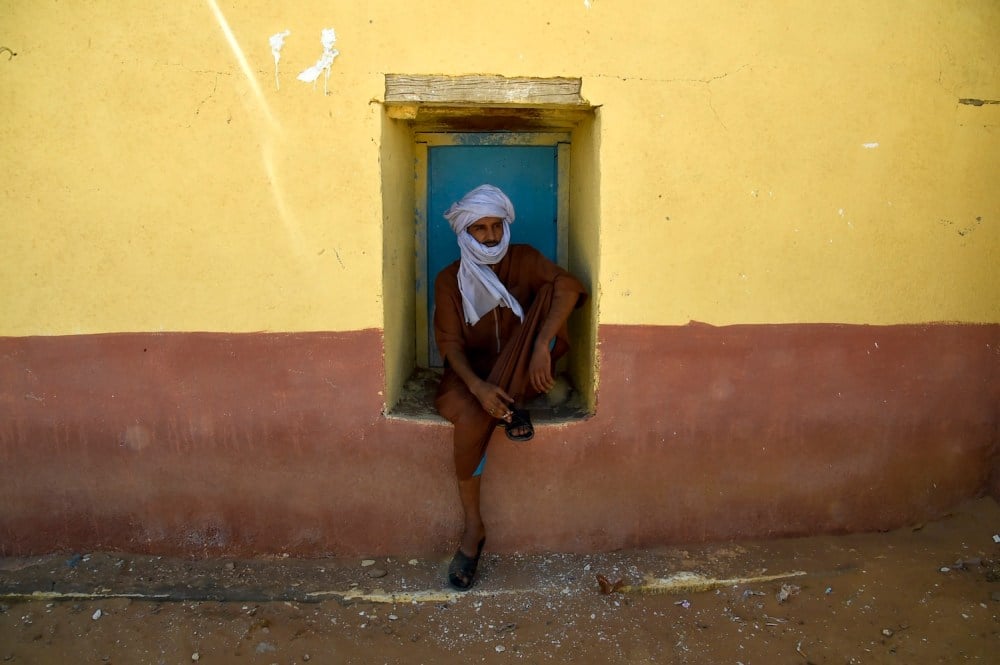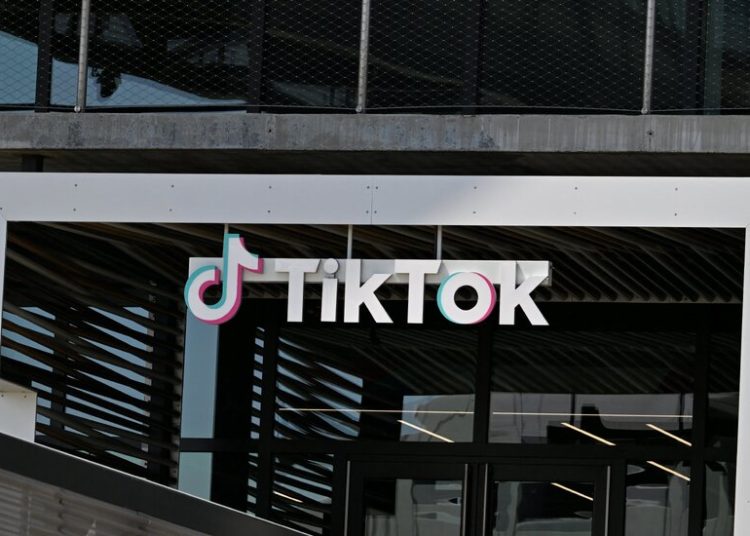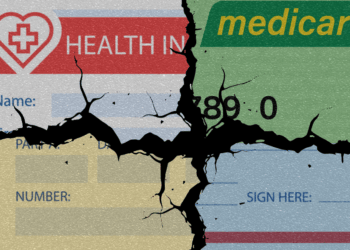Welcome to Foreign Policy’s Africa Brief.
The highlights this week: United Nations agencies struggle to mobilize resources for Sahrawi refugees in Algeria, Malawians await the results of a recent presidential election, and Egypt reportedly proposes a NATO-style alliance for Arab League members.
Sahrawi Refugees’ Worsening Humanitarian Crisis
The United Nations has warned of worsening malnutrition among Sahrawi refugees from Western Sahara at camps in Algeria, as U.N. agencies and nongovernmental organizations have scaled back aid in recent years due to lack of funding. “These reductions have had an impact on essential and life-sustaining activities,” a U.N. secretary-general report stated in July.
Acute malnutrition in the camps, which house an estimated 176,000 people, has topped 13 percent, surpassing the World Health Organization’s emergency threshold. One out of three children is stunted, and two out of three women of reproductive age and children have anemia, U.N. agencies said in June.
“Those women and children are living in the desert with absolutely no access to any other livelihood and depend 100 percent on humanitarian assistance,” Aline Rumonge, the World Food Program’s country director in Algeria, told Foreign Policy. “Let’s not forget that they do exist.”
Despite the escalating crisis, Sahrawi refugee hunger has not received much media coverage. “A prolonged crisis like this one, it’s very difficult to mobilize resources,” Rumonge said. “We need funding to be able to continue to provide humanitarian assistance to those refugees.” There is currently an estimated $103.9 million funding shortage to support Sahrawi refugees for 2025.
Algeria has hosted Sahrawi refugees in camps near the town of Tindouf since neighboring Morocco annexed parts of Western Sahara, a former Spanish colony, in 1975, displacing more than 100,000 people. Morocco now controls around 80 percent of the disputed territory, which boasts rich Atlantic fishing grounds and phosphate reserves.
Algeria backs Western Sahara’s Polisario Front, which controls the territory’s other 20 percent and seeks independence and the right to self-determination. The Polisario Front also administers the Tindouf camps.
At a session of the U.N. Human Rights Council in Geneva on Friday, NGOs called for a U.N.-led intervention and oversight in the camps to prevent slavery and racial segregation of “dark-skinned” Sahrawis, which date back centuries among communities in the northwestern Sahara. Human Rights Watch has warned of slavery and rights abuses at the camps since at least 2014.
The Network of Unity and Human Development, a Mauritian organization, wrote in May to U.N. Secretary-General António Guterres that it was “deeply concerned that the Algerian authorities may continue to ignore the violations committed against Sahrawi refugees and prevent accountability for those responsible, including officials and leaders of [the Polisario Front].”
At the same time, in an April report, Amnesty International raised concerns about rights violations against Sahrawi activists in parts of Western Sahara run by Morocco.
The international community has long been split on the dispute in Western Sahara. The Polisario Front’s self-declared Sahrawi Arab Democratic Republic is a member of the African Union, and while many nations in the global south have recognized its independence, Western nations traditionally adopted a stance of neutrality. Many countries have supported a U.N.-brokered plan to have the territory’s fate determined by a referendum, but that has stalled for decades.
During U.S. President Donald Trump’s first term in office, Washington broke with precedent by recognizing Moroccan sovereignty over the disputed territory in exchange for Morocco reestablishing diplomatic relations with Israel.
More recently, countries including France, Ghana, Kenya, and the United Kingdom have endorsed Morocco’s plan for Western Sahara as they seek to boost economic ties with Rabat, which is building a $1.2 billion trade port in Western Sahara. Under Morocco’s plan, Western Saharans would have local self-governance, while Rabat would control defense, foreign policy, and certain constitutional and religious prerogatives.
The stalemate in Western Sahara has spilled into neighboring Sahel nations, influencing trade, infrastructure development, and diplomatic alignments in Burkina Faso, Chad, Mali, and Niger.
“Attempts by Morocco and Algeria to redraw the geopolitical map in their clashing quests for greater influence in Africa are bound to have consequences for the region,” Yasmine Zarhloule wrote this month for the Carnegie Endowment for International Peace’s Diwan blog.
The Week Ahead
Wednesday, Sept. 17: The Senate Foreign Relations Committee votes on U.S. ambassador nominees to Morocco, Tunisia, and Namibia.
Wednesday, Sept. 17, to Saturday, Sept. 20: The Pan African Global Trade & Investment Conference is held in Wilmington, Delaware.
Saturday, Sept. 20: Nigerian Afrobeats star 2Baba, previously known as 2Face Idibia, performs in Harrisburg, Pennsylvania, as part of the Africa Cultural Festival.
Sunday, Sept. 21: Guinea holds a constitutional referendum.
What We’re Watching
Malawi elections. Incumbent Lazarus Chakwera is seeking a second term in Malawi’s presidential election, which took place on Tuesday as the country faces a stagnant economy, fuel shortages, and rising inflation.
The winner needs to secure more than 50 percent of the vote to avoid a runoff, and provisional results on Wednesday suggested stronger support for Chakwera’s main competitor, former President Peter Mutharika. Mutharika, an 85-year-old retired law professor, lost to Chakwera, a 70-year-old former pastor, five years ago in a court-ordered rerun of a vote that had been marred by rigging allegations.
Chakwera had promised to “clear the rubble of corruption” but failed to deliver in his term, with Malawians taking to the streets in 2022 to protest corruption. He faced further criticism for appointing allies to the country’s elections regulator. Mutharika’s first term was also marked by alleged cronyism and graft.
Before the vote, some Malawians said they felt they were being presented with the same roster of politicians who had been in government for decades without meaningful change.
Sudanese lawsuit. A trial began last week in New York over the alleged role of France’s largest bank, BNP Paribas, in financing the Sudanese government’s human rights abuses under former President Omar al-Bashir, who was charged by the International Criminal Court with genocide and crimes against humanity before he was deposed in a 2019 coup. BNP denies the allegations.
The class action was brought by Sudanese refugees living in the United States. The bank previously paid $9 billion in 2015 as part of a settlement with U.S. prosecutors after pleading guilty to U.S. sanctions violations involving Sudan.
Egyptian troops. Cairo is floating the idea of a NATO-style military alliance, according to local media reports. Egyptian President Abdel Fattah al-Sisi first proposed the idea in 2015 and has reportedly renewed the push in response to Israel’s strike on Qatar, suggesting that it would contribute 20,000 troops to the force, which would comprise Arab League members.
Sisi said on Monday that Israel’s actions in the Middle East are “obstacles to chances for any new peace agreements and even aborts existing ones.” Cairo fears that Israel will force Gaza’s population to flee south to Egypt, threatening its security.
Meanwhile, Egypt is set to deploy 1,000 troops to Somalia as part of the African Union Support and Stabilization Mission in Somalia, a force fighting al-Shabab. The deployment will likely make neighboring Ethiopia uneasy amid its ongoing dam dispute with Egypt; around 4,000 Ethiopian troops are already stationed in Somalia as part of the same task force.
Congo peace plan. A 17-page draft document seen by Reuters has outlined Washington’s role in a minerals-for-peace plan in the Democratic Republic of the Congo, whereby the United States would work with Rwanda and Congo to increase transparency in minerals mining and “de-risk private sector investment.”
Critics say the plan completely ignores the roots of the fighting, including by excluding M23, the Rwanda-backed rebel group that now controls large swaths of eastern Congo and its mines. The group paraded more than 7,000 new recruits in the city of Goma on Sunday.
“While U.S. companies may pursue strategic mining concessions in eastern Congo, such ventures remain fundamentally insecure when undertaken in a war zone, under rebel occupation, and de facto Rwandan control,” Norman Ishimwe Sinamenye wrote in Foreign Policy in July.
India-Mauritius ties. India said last week that it plans to provide $680 million in grants and loans to Mauritius for health care, infrastructure, and maritime security projects.
Mauritius has become a hot spot for global competition, especially as China, India, and the United States compete for influence in the Indian Ocean. The United Kingdom agreed to transfer sovereignty of the disputed Chagos Islands to Mauritius last October in a bid to secure a vital U.S.-U.K. military base there.
FP’s Most Read This Week
- The Golden Age of Multilateralism Is Over by Jo Inge Bekkevold
- Iran’s Foreign Policy Is Changing in Real Time by Sina Toossi
- The End of Development by Adam Tooze
What We’re Reading
Niger’s bone protectors. The Sahel is a vast treasure trove for dinosaur fossils and ancient human remains, but poverty and a lack of regulatory oversight have turned Niger into a “cultural trafficking zone, with ancient bones and artefacts smuggled out to the West and sold for exorbitant prices on black markets,” Shola Lawal and Hannane Ferdjani report in Al Jazeera.
The $4.3 million sale of a rare meteorite from Mars at a Sotheby’s auction in New York in July exemplified the problem. Nigerien authorities have questioned the legality of the meteorite’s export and opened an investigation into it. (Sotheby’s says it was exported in line with “all relevant international procedures.”)
Internet shutdown. Residents of Equatorial Guinea’s remote Annobón island have had their internet cut off for more than a year after they complained about a Moroccan company’s dynamite explosions and construction work polluting farmland and the water supply, Ope Adetayo reports in The Associated Press.
“Banking services have shut down, hospital services for emergencies have been brought to a halt and residents say they rack up phone bills they can’t afford because cellphone calls are the only way to communicate,” Adetayo writes.
The post U.N. Warns of Hunger Among Western Sahara Refugees appeared first on Foreign Policy.




